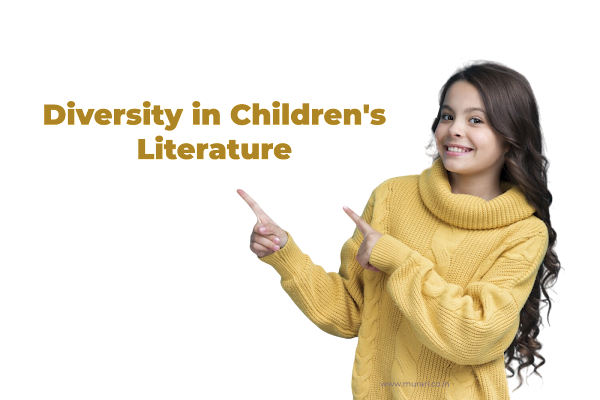Why Diversity in Children's Literature Matters: The Importance of Representation and Inclusion
Diversity in children's literature has been a topic of discussion for many years, and for good reason. The books that children read and are exposed to during their formative years can have a profound impact on their understanding of the world around them.
Representation and inclusion in children's literature matter because they have the power to shape a child's perception of themselves and others.
In this article, we will explore why diversity in children's literature is so important and how it can make a difference in the lives of young readers.
The Importance of Representation
Representation in children's literature is about making sure that all children can see themselves in the books they read.
This means that children from diverse backgrounds should be able to find characters in literature that look like them, have experiences like theirs, and share their cultural heritage.
When children see themselves reflected in the literature they read, it can help them to develop a positive sense of identity and self-worth.
For children from underrepresented groups, seeing characters like themselves in literature can be particularly impactful.
When they see themselves represented in books, it can help to counteract the negative messages that they may be receiving from society about their worth and value.
It can also help to create a sense of belonging and community, as children see that they are not alone in their experiences.
Representation in literature is also important for children from dominant cultural groups.
When these children read books that feature diverse characters, it can help to broaden their understanding of the world and the experiences of others.
It can also help to counteract stereotypes and prejudices that they may have internalized.
The Importance of Inclusion
Inclusion in children's literature goes beyond just representation. It is about creating a world in literature that reflects the real world, with all of its diversity and complexity.
Inclusion means that children from all backgrounds are able to see characters who are different from themselves in meaningful and respectful ways.
Inclusive literature helps to promote empathy and understanding, as children are able to see the world through the eyes of characters who may be different from themselves.
It can also help to break down stereotypes and prejudices, as children are exposed to a range of experiences and perspectives.
Inclusive literature can also help to prepare children for life in a diverse and multicultural society.
In a world where diversity is becoming increasingly important, it is crucial that children learn to navigate differences and interact with people from all backgrounds.
Inclusive literature can help to facilitate these conversations and create opportunities for children to learn about and appreciate other cultures and ways of life.
The Impact of Lack of Diversity
When children's literature lacks diversity, it can have a negative impact on young readers.
Children who are unable to find characters in literature that reflect their experiences may feel invisible or unimportant.
They may also feel disconnected from the world around them and struggle to develop a sense of identity and self-worth.
For children from underrepresented groups, the impact of a lack of diversity in literature can be particularly significant.
When they are unable to find characters who look like them or share their experiences, it can reinforce negative messages about their worth and value.
It can also contribute to feelings of isolation and exclusion.
The impact of a lack of diversity in literature can also extend beyond individual children.
When books lack diversity, it can perpetuate stereotypes and biases that can have a negative impact on society as a whole.
It can also contribute to a lack of understanding and empathy, as people are not exposed to a range of experiences and perspectives.
Creating Diverse and Inclusive Children's Literature
Creating diverse and inclusive children's literature is essential for promoting empathy, understanding, and positive self-identity.
There are several ways that authors, publishers, and educators can work to increase diversity in children's literature.
Check also - Courses | Tech News
One way to increase diversity in children's literature is to seek out and support books that feature diverse characters and




Comments